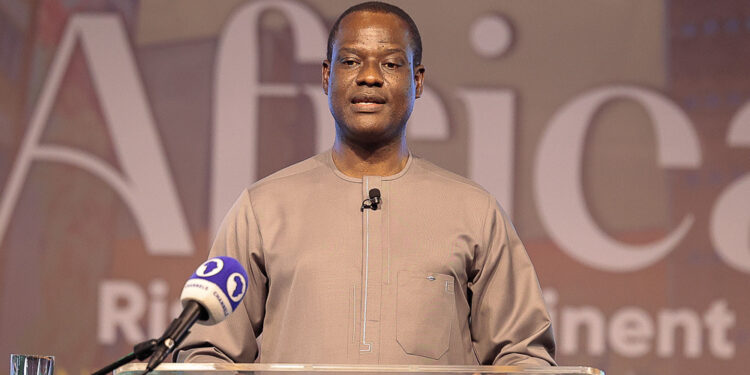COMMITTEE PROPOSAL: USSD PAYMENT OF TAXES AND ADDITIONAL OPTIONS
In the realm of Nigerian business news concerning federal taxes, Taiwo Oyedele, the head of the federal committee for tax reform, emphasized the committee’s proposal for utilizing Unstructured Supplementary Service Data (USSD) and various digital platforms for tax and levy payments across the three tiers of government.
During a public forum on Wednesday, Oyedele addressed concerns, stating that his responsibilities include alleviating the tax burden on Nigerian citizens and digitizing the collection process through multiple channels, including USSD, to enhance efficiency, minimize leakages, and ensure accountability. He underscored that these proposals were communicated to various government bodies in Nigeria.
Regarding state and local government taxes, Oyedele highlighted that 46 different taxes and levies, such as truck, canoe, wheelbarrow, motor park levies, road taxes, and cart fees, are currently being administered. He expressed concern over the existence of over 60 taxes, levies, and charges across the three levels of government.
In a forum meeting, Oyedele stated, “The costs associated with these taxes are inevitably transferred to consumers, particularly low-income earners. Payers also face challenges with unorthodox collection methods and harassment from untrained ‘revenue collectors’ in various locations, resulting in little visible impact from the collected revenues.”
“We advocate for the repeal of burdensome taxes, the harmonization of justifiable ones, and the digitization of the collection process through multiple channels, including USSD, to enhance efficiency, reduce leakages, and promote accountability,” added Oyedele.
The Tax Committee welcomed various civil approaches to address these issues. Oyedele mentioned, “The Committee has two alternatives: either recruit and train new personnel for compliance or train existing collectors to adopt a more civil approach. While the former might lead to potential backlash, the latter offers a sustainable solution, avoiding social crises and providing relief to small businesses.”
He emphasized that the proposed reforms stand a better chance of success when they achieve a win-win outcome for all stakeholders, rather than alienating others. The Committee actively encourages criticisms and seeks feedback and ideas from the public to ensure inclusivity and effectiveness.

